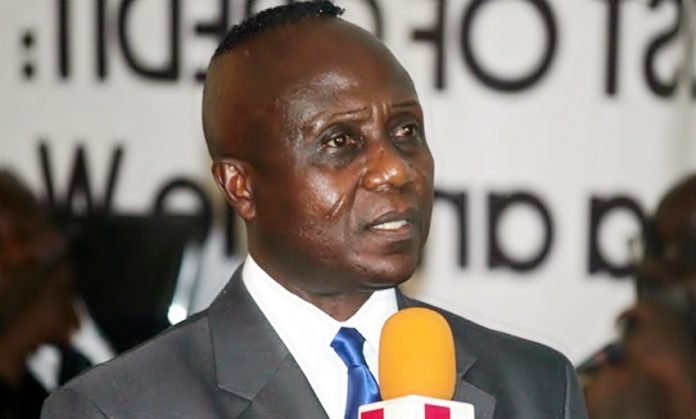The Institute of Economic Affairs (IEA) is proposing a strict oversight by Parliament over borrowing and debt accumulation as per Article 181 of the Constitution, a move it believes will significantly reduce the country’s unsustainable debt.
The economic and policy think tank is also recommending the imposition of a debt ceiling of 60% of Gross Domestic Product (GDP) at any time, which is generally regarded to be a sustainable threshold.
In a paper on “Institutionalising Fiscal Discipline and Macroeconomic Stability for Sustained Growth in Ghana: The Constitutional Pathway”, it said only in times of emergency or crises should Parliament approve borrowing that would breach the debt ceiling, adding, “even in that circumstance, Parliament should indicate a time frame to return to the ceiling. This will be akin to what pertains in the US”.
According to the IEA, if this rule is strictly followed, the perennial debt crises will be prevented.
Again, the rule will also force fiscal discipline on the economic managers as a necessity to operate within the borrowing and debt ceilings, stressing, the borrowing and debt ceilings can be incorporated into the Fiscal Responsibility Act.
It is additionally seeking constitutional backing for them.
The IEA has researched extensively in the area of debt sustainability.
It evidence was that constant borrowing to finance the country’s budget deficits has historically fuelled the debt, for long periods to unsustainable levels.
Indeed, the country’s debt that had reached over 100% of GDP prior to 2004 dropped to 26% in 2006 after receiving the Highly Indebted Poor Country Initiation relief. However, the debt has ballooned yet again to over 100% presently due to persistent fiscal profligacy.
This, the IEA pointed out, has taken Ghana back to the International Monetary Fund and prompted restructuring of the debt.
IEA seeks institutionalisation of fiscal rule
Due to Covid-19 pandemic, the fiscal rule established by the Fiscal Responsibility Act (FRA), 2018 (Act 982) was suspended.
The FRA set a ceiling of 5% for the overall deficit and included, appropriately, an escape clause allowing the rule to be suspended by the Finance Minister in case of a range of stipulated unexpected shocks.
However, the IEA said, contrary to its suggestion that the ceiling should be promptly restored after the amelioration of the shock, the FRA made the restoration open-ended.
It is therefore seeking the institutionalisation of the fiscal rule in the Constitution to safeguard it.
Latest Stories
-
Shamima Muslim urges youth to lead Ghana’s renewal at 18Plus4NDC anniversary
40 minutes -
Akufo-Addo condemns post-election violence, blames NDC
48 minutes -
DAMC, Free Food Company, to distribute 10,000 packs of food to street kids
2 hours -
Kwame Boafo Akuffo: Court ruling on re-collation flawed
2 hours -
Samuel Yaw Adusei: The strategist behind NDC’s electoral security in Ashanti region
2 hours -
I’m confident posterity will judge my performance well – Akufo-Addo
3 hours -
Syria’s minorities seek security as country charts new future
3 hours -
Prof. Nana Aba Appiah Amfo re-appointed as Vice-Chancellor of the University of Ghana
3 hours -
German police probe market attack security and warnings
3 hours -
Grief and anger in Magdeburg after Christmas market attack
3 hours -
Baltasar Coin becomes first Ghanaian meme coin to hit DEX Screener at $100K market cap
4 hours -
EC blames re-collation of disputed results on widespread lawlessness by party supporters
5 hours -
Top 20 Ghanaian songs released in 2024
5 hours -
Beating Messi’s Inter Miami to MLS Cup feels amazing – Joseph Paintsil
5 hours -
NDC administration will reverse all ‘last-minute’ gov’t employee promotions – Asiedu Nketiah
5 hours

